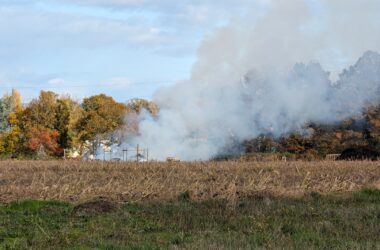The bird flu is not just for the birds anymore.
Last Monday, the U.S. Department of Agriculture announced it had confirmed that a mysterious illness affecting dairy cows in Texas and Kansas was caused by a highly infectious strain of bird flu. By Friday, federal agriculture officials said dairy cows in Idaho and Michigan, which had received cows from Texas, were also infected. The USDA said the strain of the virus, highly pathogenic avian influenza, in Texas, Kansas and Michigan was similar and was probably introduced by wild birds.
“Initial testing has not found changes to the virus that would make it more transmissible to humans,” the USDA said in a statement. “While cases among humans in direct contact with infected animals are possible, this indicates that the current risk to the public remains low.”
The bovine cases may indicate that the virus can spread among cows, the USDA said. It has also infected dairy cows in Idaho, and a man in Texas who was in contact with infected cows also contracted the virus, The Centers for Disease Control and Prevention reported on Monday. It said he developed eye redness similar with conjunctivitis and was recovering. He is only the second man in the U.S., after a 2022 case in Colorado, to be confirmed to have caught the virus. Federal officials are monitoring people who’s be close to infected herds for any symptoms.
The Oregon Department of Agriculture indicated that the virus has not been detected in cows in Oregon, and it said in a news release that there is no concern for people catching the virus. The state has seen successive waves of bird flu outbreaks in backyard poultry, resulting in flocks being culled. The virus is transmitted by migrating wild birds like geese and pelicans.
The USDA has advised dairy farm owners to monitor their animals and isolate any cows that become sick. Officials said affected animals have recovered after being put in isolation.
Federal officials are not worried about the virus getting into the milk supply and infecting humans because commercial milk is pasteurized, a process that inactivates bacteria and viruses. Raw milk, however, can pose a risk. The Food and Drug Administration recommends that raw milk is not sold for consumption or for making cheese and other dairy products.
For more information about the safety of raw milk, check the FDA’s website.
This story originally appeared in the Oregon Capital Chronicle and is republished here under a CC BY-NC-ND 4.0 license. Read more stories at oregoncapitalchronicle.com.






